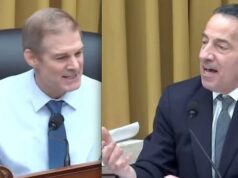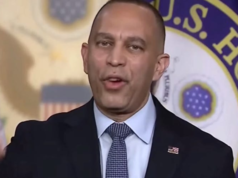Ahead of the next GOP Presidential debate, former SC Governor Nikki Haley has unveiled her economic plan to pursue if she is elected President, even though she is currently a long-shot candidate trailing in the polls.
Haley’s plan includes:
-
Eliminating the federal gas tax, reducing the income tax, and making small-business tax relief permanent

Most campaign experts give Haley a long-shot of winning the GOP Primary. Her original 2010 run for Governor was a long-shot until she was greatly helped with endorsements by Mitt Romney and Sarah Palin. Now, though, Nikki Haley is slightly more unfavorable among the general public than favorable. Haley has anemic support among GOP Primary voters, averaging around 5% in Presidential primary polling.
Haley started her political career as a State Representative in the South Carolina legislature in 2004, serving until elected Governor of South Carolina in 2010. She was re-elected as Governor in 2014, and then resigned to become Trump’s Ambassador to the United Nations from 2017-2018, resigning in December 2018.

Haley has said that Hillary Clinton ‘inspired’ her to run, “The reason I actually ran for office is because of Hillary Clinton… She said that when it comes to women running for office, there will be everybody that tells you why you shouldn’t, but that’s all the reasons why we need you to do it, and I walked out of there thinking, ‘That’s it. I’m running for office.’”
During her years as Governor, Haley signed off on six South Carolina state budgets: 2011-2012; 2012-2013; 2013-2014; 2014-2015; 2015-2016; 2016-2017. Then-Governor Haley often used the powers of a line-item veto to remove funding she specifically disagreed with.
None of Haley’s budgets involved major cuts to programs. In 2011, the South Carolina state budget was $21 billion. By 2017, the state budget had grown to $27 billion having increased nearly $1 billion each fiscal year.
South Carolina does not currently use “zero-based budgeting” to set their state budgets. Then-Governor Haley could have supported a bill to do so in 2011 with HB 3215, or in 2014 with HB 4549. Both bills were introduced and did not even receive a hearing in the legislature. There’s no record that then-Governor Haley even spoke in favor of either bill.
But in 2011, fiscal hawk Nikki Haley was able to line-item veto funds set to be used for election integrity:

We asked the Nikki Haley for President campaign for comment and did not hear back.









